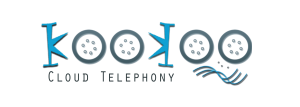ProductNation interviewed CSN Murthy, Founder and CEO of Ozonetel, a leader in cloud telephony based solutions. In this freewheeling chat, Murthy, a serial entrepreneur, shares his mantras on building a successful technology based venture. Read on…
What was the motivation to start Ozonetel?
 Around 2007, after the successful exit from Intoto, we examined various opportunities in the marketplace to start a new venture. Having worked in the telecommunications space over two decades, we recognized a huge unmet need in the Indian marketplace in the area of usage of telephony by businesses. Businesses were losing out on vital customer leads and important information due to their reliance on traditional telephony based system. We therefore setup Ozonetel during 2007-08 to solve the customers communication based challenges through cloud based telephony solutions.
Around 2007, after the successful exit from Intoto, we examined various opportunities in the marketplace to start a new venture. Having worked in the telecommunications space over two decades, we recognized a huge unmet need in the Indian marketplace in the area of usage of telephony by businesses. Businesses were losing out on vital customer leads and important information due to their reliance on traditional telephony based system. We therefore setup Ozonetel during 2007-08 to solve the customers communication based challenges through cloud based telephony solutions.
Can you explain the rationale behind using cloud as a delivery mechanism of communication products/services to Indian customers?
Cloud based telephony solutions is a natural progression from the previous physical PBX solutions. On the technology front, cloud based solutions help overcome the existing limitations of telephony solutions such as missing an inbound enquiry from a prospective customer. It provides tools to track your efficiency in responding to customers. Businesses can scale quickly based on the volume of customers they deal with on a pay-as-you go basis. Thirdly, since the workforce of businesses has increasingly become mobile, a cloud based telephony solution enables a business to respond to customers without being bogged down by physical location based constraints. These and many more aspects provide unprecedented value to businesses to solve their communication challenges. So, we started offering these cloud based telephony solutions to the Indian market.
How did you get your initial set of customers? What learning did you obtain from dealing with them?
We targeted the segment of customers who were willing to experiment with our offering. The first version of our offering required significant technical expertise at the customer end to use and benefit from it. Luckily for us, our first sets of customers were mostly technology based startups who understood the value of our solution. Companies like ZipDial and Asklaila used the APIs that we provided and integrated them in the manner they preferred. Grameen Foundation, another early customer of ours took help from ThoughtWorks to integrate our solution with their other systems. We also learnt from our initial prospecting that cost was an important parameter for businesses in India.
How did the company evolve from the first offering to its current state, where it has diversified cloud product offerings?
 After finding initial customer acceptance, we quickly realized that in order to scale our business and make it usable across different sectors, it was important to make our solution more consumable and usable by end customers. Towards this end, our first solution was to announce KooKoo – a telephony platform that allowed end customers to build their own applications either on voice, SMS or fax. We then further enhanced our portfolio with Bizphone – a virtual PBX solution on cloud which customers could use out of the box, with no set up costs and hardware investments. The Bizphone offering helped us cater to needs of diverse set of customers across different sectors. Based on our insight and customer feedback, we enhanced our product portfolio by introducing CloudAgent – our cloud based contact center solution for businesses that are slightly more sophisticated business communication requirements. The growth of business in India augured well for us and we now offer these solutions to businesses of all sizes and sectors.
After finding initial customer acceptance, we quickly realized that in order to scale our business and make it usable across different sectors, it was important to make our solution more consumable and usable by end customers. Towards this end, our first solution was to announce KooKoo – a telephony platform that allowed end customers to build their own applications either on voice, SMS or fax. We then further enhanced our portfolio with Bizphone – a virtual PBX solution on cloud which customers could use out of the box, with no set up costs and hardware investments. The Bizphone offering helped us cater to needs of diverse set of customers across different sectors. Based on our insight and customer feedback, we enhanced our product portfolio by introducing CloudAgent – our cloud based contact center solution for businesses that are slightly more sophisticated business communication requirements. The growth of business in India augured well for us and we now offer these solutions to businesses of all sizes and sectors.
How have you ensured that you have competitive advantage in the marketplace?
We had the first mover advantage when we started – which helped us to garner the initial set of customers. However, as the marketplace started seeing benefits of cloud based telecommunication solutions, new competitors emerged. Having been in this domain for a fairly long time, we had envisioned this scenario – and have developed key differentiating strategies right from our inception.
Back in 2007, when we started, we could easily have integrated a solution from different vendors and provide the same to businesses to satisfy their immediate needs. We instead chose to develop the entire solution stack – right from the hardware, telecom cards and software on our own. Though this took us about 18 months, this approach helps us in minimizing our dependency on external software/hardware/technology vendors. We also are in a very good position to incorporate customer feedback on to our solution stack – since we have total control on all layers of the solution. This approach has helped us to innovate constantly and maintain an edge over the competition.
Another complementary strategy we have executed in the recent years is to ensure customer stickiness. We have constantly delighted customers with superior service and helped them scale effortlessly as their businesses have grown. Thus, many of our initial customers have now migrated from using the low-value virtual PBX solution to leveraging our high value cloud contact centre solution. This approach has helped us both retain our existing customers, as well as ensured that we earn more working with them.
What internal measures have you taken to ensure that Ozonetel retains its edge in the marketplace?
From an operational perspective, we have ensured that the Organization has the best leaders in every functional area. Our founding team is a great mix of complementary capabilities that are required to drive excellence across all aspects of the company. Getting to specifics, on the Sales front, we have presence now in many cities. This helps in building and sustaining relationships with customers. We realized very early that physical presence is important to close a sale. Hence we took steps to ensure we were physically accessible to customer.
On the development and R&D front, given that we are a technology based company, we have a maniacal focus on developing the best solution using the latest technological developments in our domain. We have effectively used our prior working experience to provide superior post-sales support to our customers. We take customer care very seriously – and it also is one of our key differentiators from competition, due to our superior execution and empathy for customers. All these have ensured that Ozonetel as an Organization responds nimbly to external environmental changes.
On a related note, how important it is to have a good founding team? What characteristics of the top management team in your experience will enable success of the firm, especially in its formative years?
It is absolutely critical to have leaders with complementary skills in the top management team. It is also equally important that there is good chemistry between the founding team members. Once you have the above combination in place, you will automatically be geared to deal with the uncertainties and ambiguities that confront a nascent organization. In our case, I have been very careful in signing on our founding team and the top management team. I recommend that one closely work and observe the working style of any prospective founding partner that they want to bring on board. This helps in validating the nature of contributions that the person will bring in, as well as help understand if the person gels well with the rest of team members.
Another thing that I have realized from working across multiple ventures – is to recruit your sales leader up front – right from a very initial stage. This helps in enabling the Organization to grow rapidly at later stages. The Sales leader understands the other functional units of the company better due to the fact that they worked together in the initial stages. This bonding helps immensely as the company grows.
Thank you for your insights. As a parting question, what would be the top three things that you would advice to your fellow product entrepreneurs operating out of India?
As I reiterated, starting off with the right set of founding team members – in terms of complementary skills and good teaming is very critical to any enterprise, more specifically for a technology product based company. Secondly, as the founder, ensure that you hire right for the Organization. Do not compromise on skills or on any other aspects that affects the culture of the company. Thirdly, as many others would tell you, keep your ears close to the customer. Constantly delight them and seek to improve continuously. Success will surely follow!



